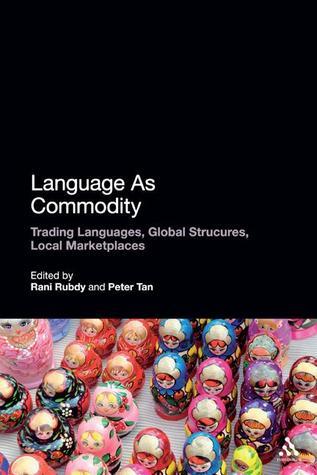Did you ever race through a book only to get a couple of good quotes? Here are the three passages I plan to cite someday:
"Linguistic instrumentation assumes the continued importance of multi-/bilingualism, so that the language whose economic value is being championed is acquired in addition to English, never in place of it (Wee 2008:42).
"...it is not simply material gain that gives a language its value and that enables us to talk of it as being commodified. Rather, a language is commodified in the sense that it is given a value based on its association with some form of benefit or 'goods' of worth to the society" (Alsagoff 2008:45).
"Indeed, what ultimately galvanizes people around a language is probably not a question of either/or: either the more emotive cultural/national identification with the language or the more practical instrumental uses of language. Both are more linked to one another than has hitherto been argued explicitly" (Block 2008:201).

